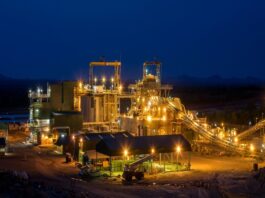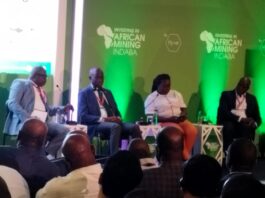In a note, the Democratic Republic of Congo (DRC) warns that it is facing threats that its cobalt will be banned from export to the international market. The DRC was keen to clarify its production chain. At the same time, it announced its intention to formalise and improve its mineral traceability system in the artisanal sector through the implementation of many projects.
For some time now, the Democratic Republic of Congo has been facing direct or veiled threats to ban its cobalt exports to the international market, on the pretext of irregularities in the chain of possession and/or extraction of this commodity, whether from the artisanal or industrial production sector.
The Ministry of Mines would like to make the following clarifications:
The Democratic Republic of Congo’s soil and subsoil contain a variety of mineral substances whose deposits can be exploited industrially or artisanally, depending on the technical, economic and financial factors of the time.
A number of projects have been set up to formalise and improve the mineral traceability system in the artisanal sector.
With a view to developing and moving from pit mining to small-scale mining, and with a view to improving and securing the mining sector, our country, with the support of its partners, has succeeded in :
- Validation of the standards framework for artisanal and small-scale cobalt mining, with the Responsible Minerals Initiative (RMI), a US organisation with more than 400 member companies, which establishes a series of environmental, social and governance requirements for mining sites, enabling optimum traceability of ores;
- The operationalisation of the General Cobalt Company (Entreprise Générale du Cobalt), which is working to promote cobalt from artisanal production in support of economic development in the DRC, as well as that of the Strategic Mineral Substances Market Regulation and Control Authority (Autorité de Régulation et de Contrôle des Marchés des Substances Minérales Stratégiques), a body responsible for regulating and cleaning up the markets for strategic mineral substances;
- The setting up of the Interministerial Commission on Child Labour in Artisanal Mining (Commission Interministérielle sur le travail des enfants dans le secteur des mines artisanales – CISTEMA), which, with the support of the International Labour Organisation and the US Department of Labor, is implementing the process of identifying and setting up alternative options such as trade schools and agricultural projects, with a view to speeding up the removal of children and vulnerable people from the mines and their retraining;
- The development of Artisanal Exploitation Zones with the support of BGR, the German government’s geoscientific body;
- The provision of Geological Research Zones (Zones de Recherche Géologiques – ZRG) by the National Geological Service (Service Géologique National – SGN-C) through various geophysical and geochemical prospecting projects.
In addition, the close collaboration established between the Democratic Republic of Congo and its partners has made it possible to :
- The implementation, in the next few days, of the International Visitor Leadership Program, a programme financed by the US Government, enabling young Congolese to be reinvigorated/immersed in real time in the US mining sector through visits lasting a few weeks in the United States to enable them to discover the mines, extraction and processing plants, upstream and downstream, of the mineral extraction chain.
- The organisation of brainstorming meetings initiated by the Ministry of Mines with technical and financial partners, such as USAID, RMI and BGR, in order to harmonise the efforts of the various stakeholders to test the impact of the various formalisation initiatives suggested and implemented in the field.
The Ministry of Mines points out that the formalisation of the artisanal mining sector is being carried out in full compliance with the Mining Code and its implementing measures, particularly in terms of standards for the protection of human rights and corporate social responsibility.
Finally, it should be remembered that, in mining in the Democratic Republic of Congo, the share of the artisanal sector remains minimal, particularly where copper-cobalt metals and their companions are concerned. A study is currently underway to determine the true contribution of the artisanal sector to annual cobalt production in recent years, with copper production rising steadily.
Kinshasa, 25 July 2023





